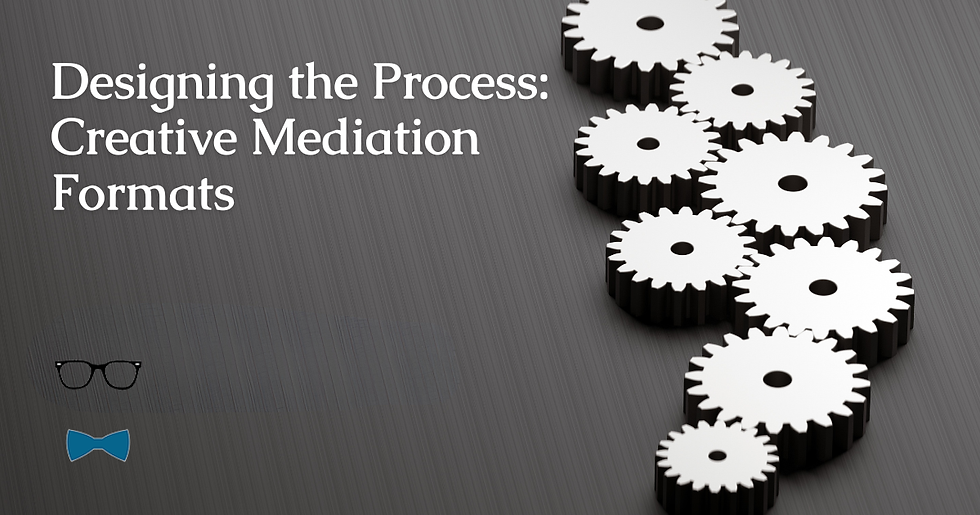The Art of Inquiry in Complex Mediations: A Guide for Attorneys
- Cooper Shattuck

- Apr 23, 2024
- 3 min read
In the intricate tap dance of mediation, the spotlight often falls on the persuasive dance of argumentation. Attorneys, seasoned in the art of advocacy, are accustomed to a performance where asserting positions, presenting evidence, and crafting compelling narratives take center stage. Yet, there's an often-underutilized strategy that can transform the dynamics of complex mediations, foster a deeper understanding, and pave the way to mutually beneficial resolutions: the art of asking questions. And even in caucuses, where we seem to spend most of our time, they can be used effectively through the mediator.

Why Questions Matter
At its core, mediation is about bridging divides, understanding multifaceted issues, and finding a path forward that all parties can agree to. In complex cases, where the stakes are high and the issues are layered with legal, financial, and even emotional intricacies, the traditional adversarial approach can sometimes entrench positions rather than illuminate pathways to resolution. This is where strategic questioning becomes invaluable.
Unearthing Underlying Interests
Asking questions allows the parties to delve deeper than the surface-level positions presented by the opposing side. It helps uncover the underlying interests, concerns, and motivations that may not be immediately apparent. Understanding these elements is crucial in complex mediations, as it opens up possibilities for creative solutions that address the core needs of all parties involved.
Enhancing Communication and Building Trust
Questions, especially those framed in a non-confrontational manner, can facilitate better communication between parties. They signal a willingness to listen and understand rather than simply to persuade or defeat. This can help in building a foundation of trust, essential for any successful mediation. When parties feel heard and understood, they are more likely to engage in open, productive discussions.
Identifying and Clarifying Assumption
In any dispute, parties come with their own assumptions and preconceived notions about the other side's positions and motivations. Through asking questions, the parties can clarify these assumptions, which may be erroneous or based on incomplete information. This clarification process is vital in complex mediations, where misunderstandings can derail negotiations.
Encouraging Reflection and Reevaluation
Good questions can prompt parties to reflect on their positions and the feasibility of their demands. This reflective process can lead to a reevaluation of what is truly important, helping parties to prioritize their goals and potentially make concessions on less critical issues.
How to Ask Effective Questions
To harness the full power of questions in mediation, attorneys should focus on open-ended questions that encourage detailed responses, rather than simple yes or no answers. Questions should be framed in a way that is non-threatening and designed to elicit information and insight. For example, asking "Can you help me understand why this is important to you?" can open up a discussion that reveals underlying interests.
Because we spend most of our time separated in caucuses, these questions should be designed to be conveyed by the mediator to the other side, not asked of the mediator. Make sure the mediator understands what you are asking and how you want the question asked. Better yet, explore with the mediator whether a joint session might be possible. Of course, everyone has to be in the right frame of mind for such sessions to be productive.
If you are able to meet face-to-face, active listening is crucial. It is not enough to simply ask questions; attorneys must listen attentively to the answers, showing genuine interest and engagement. This fosters a collaborative atmosphere where solutions can be co-created. If the questions are being asked by the mediator, the mediator must be skilled in active listening.



Comments